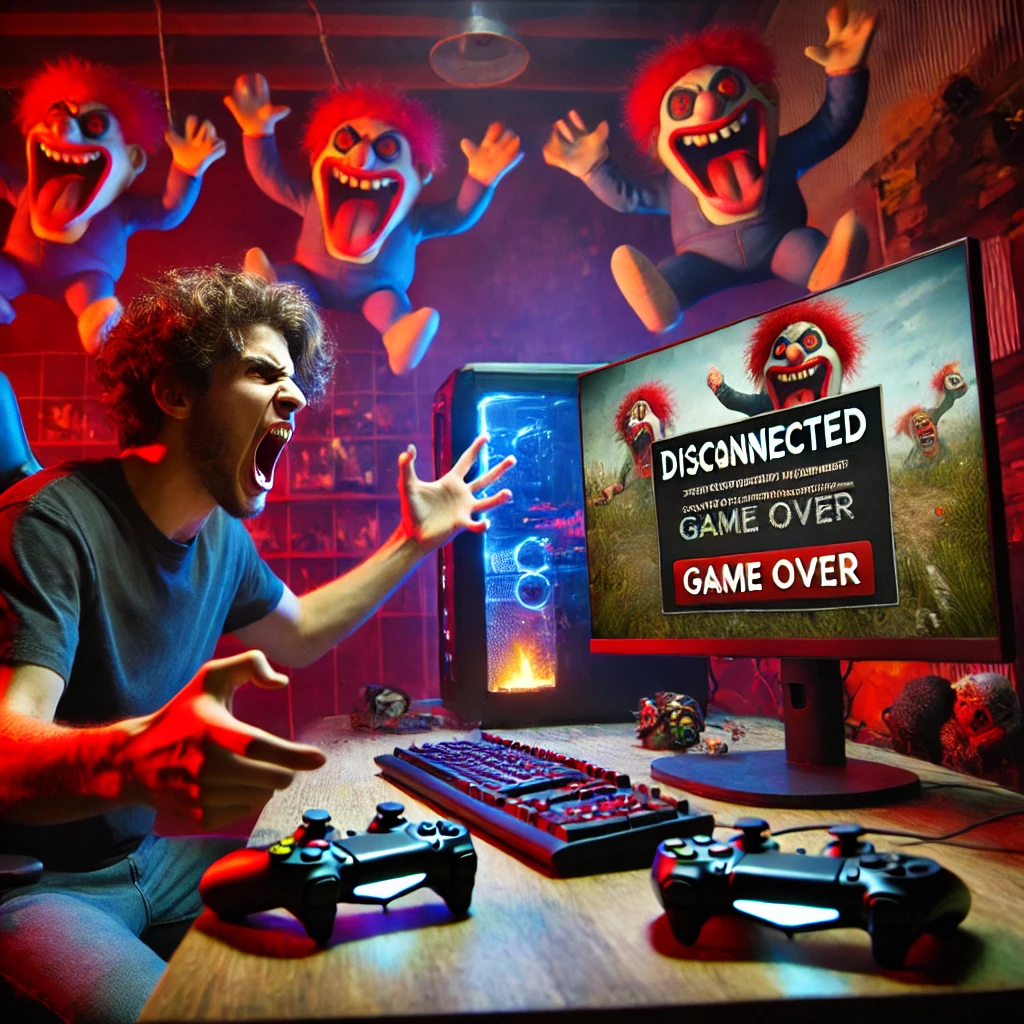Rage-quitting has become a common phenomenon in online gaming, particularly in troll games designed to frustrate players. Whether it’s a game with unpredictable mechanics, unfair difficulty spikes, or outright trolling elements, many gamers find themselves quitting in anger. But why do people rage-quit these games? Let’s explore the psychology behind this reaction.
The Psychology of Frustration in Gaming
Gaming is meant to be an engaging and immersive experience, but when a game intentionally disrupts expectations, it can lead to intense frustration. Several psychological factors contribute to rage-quitting in troll games:
1. Loss of Control
Troll games often take away a player’s sense of control by introducing random or unfair obstacles. This loss of agency can trigger anger, as people naturally seek predictability and mastery in games.
2. High Emotional Investment
Players invest time, effort, and emotions into games. When progress is abruptly halted by unfair mechanics, it can feel like a personal setback, leading to rage-quitting.
3. Violation of Player Expectations
Most games follow certain design principles that reward skill and progress. Troll games, however, break these expectations by introducing hidden traps, impossible jumps, or unpredictable mechanics. This betrayal of expectations can be extremely frustrating.
4. Social Pressure and Embarrassment
In multiplayer troll games, players may feel embarrassed if they repeatedly fail in front of others. This social pressure can push them to rage-quit rather than endure further frustration.
The Role of Game Design in Rage-Quitting
Some games are intentionally designed to test a player’s patience. Examples like Getting Over It with Bennett Foddy or QWOP thrive on difficult mechanics that make even simple actions a challenge. These games trigger rage-quitting by:
- Utilising unpredictable physics-based mechanics
- Punishing small mistakes with major consequences
- Forcing players to start over frequently
While this design can be frustrating, it also makes victory feel more rewarding for those who persist.
How to Handle Rage in Troll Games
If you find yourself getting angry while playing troll games, here are some strategies to help:
- Take breaks: Step away from the game when frustration builds up.
- Adjust expectations: Accept that troll games are meant to be unfair.
- Find humor in failure: Laughing at your own mistakes can make the experience more enjoyable.
- Watch others play: Seeing other players struggle can normalize the difficulty and reduce frustration.
Conclusion
Rage-quitting in troll games is a natural reaction to frustration, loss of control, and violated expectations. While these games are designed to push players to their limits, understanding the psychology behind them can help manage anger and turn the experience into a fun challenge. So next time you encounter an impossible level or a hidden trap, take a deep breath, laugh it off, and try again!

